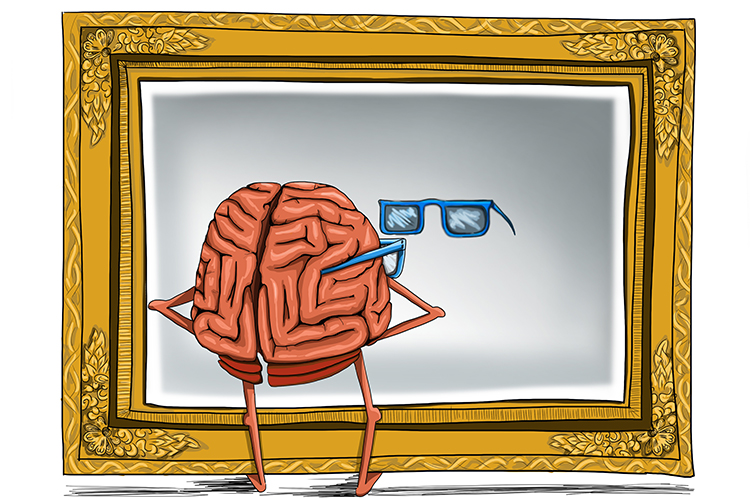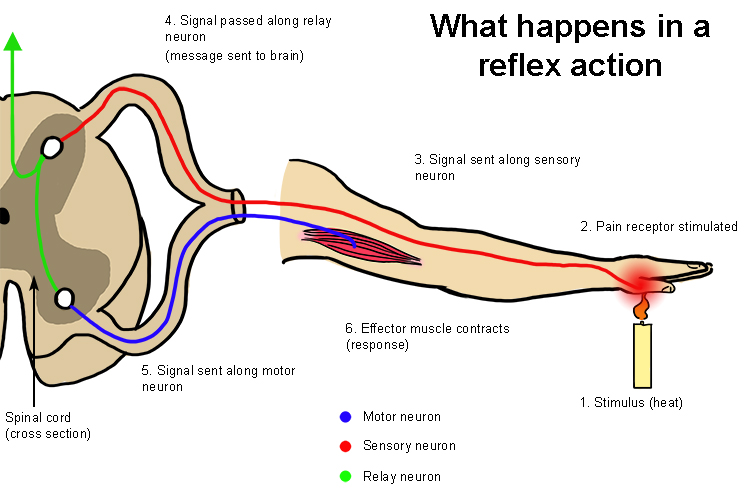Reflex action – near-instantaneous response that does not involve the brain
A reflex action is a very fast response to a stimulus that does not involve the brain; having to think would slow down the response.

The reflection (reflex action) in the mirror did not involve the brain.

In a reflex action, a stimulus (in this case, the heat from a burning candle) arouses sensory receptors, which send a signal via sensory neurones to the spinal cord. The signal is then transferred to a relay neuron, which in turn passes the signal to a motor neurone. Upon receiving the signal from the motor neurone, the effector muscle in the arm responds by contracting to move the hand from the flame. It takes a fraction of a second, and the reflex action signal does NOT go to the brain, which would slow down the action.




